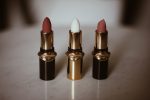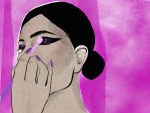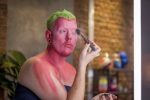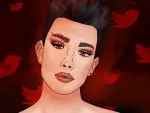We know them well — brands that preach self-love, acceptance and “natural” looks. Brands that advocate for going bare-faced, make-up free and then try to sell you foundation to cover all your blemishes up for a flawless and clear face. Companies like Glossier, a beauty brand founded upon the idea of “beauty inspired by real life” is one of many in the industry that does this shocking 180.
Before I dive into the myriad issues surrounding the luxury beauty market, I want to make something clear: I love make-up. I wear it daily. I love playing with and having fun with what I put on my face. It is not my intent to deter anyone from trying any beauty product. I am simply frustrated with the marketing techniques that beauty brands — particularly luxury brands — use to persuade customers that they need a particular product. The truth is, we don’t. Medical cases aside, skincare “problems” like acne, blackheads and rosacea are incredibly normal. The beauty industry just tells us that they aren’t, and we believe them.
Let’s take a closer look at Glossier. Founded in 2014, this brand’s statement is as follows: “Glossier is a new approach to beauty. It’s about fun and freedom and being OK with yourself today. We make intuitive, uncomplicated products designed to live with you.” From the outset, these sentences aren’t controversial at all. Glossier seems like the perfect, minimalist brand to fit seamlessly into the working person’s routine for a clear face, but take a closer look and there are more than a few red flags.
The First Red Flag
Glossier is not a new approach to beauty. Minimalist products have existed for years. RMS Beauty has been around since 2009, with a statement ending in the phrase, “So go ahead and let your natural beauty shine!” They too have been longtime advocates for clean, minimal beauty meant to create a “natural” look. Using Glossier as an example, approaching beauty with fun and freedom in mind isn’t that revolutionary.
The Second Red Flag
Beauty brands that market themselves as advocates of acceptance have, historically, had major issues with diversity inclusion in their workplaces. Outta the Gloss is a collective of former Glossier retail employees who, after experiencing horrific working conditions and blatant racism, quit Glossier and are trying to educate customers on the company’s abhorrent practices.
“The brand emanates progressivism, but many of the workplace abuses you’ve heard coming from booming boy’s club tech companies happened to us, too,” says the open letter Outta the Gloss wrote to Glossier. It continues, “We know that Glossier branding is subtly aspirational. We’d be remiss if we didn’t acknowledge the air of individual inaccessibility nested in that brand identity.”
Beauty brands are just that — brands. The goal is to make a profit, and in order to make a profit, a product must be sold. Luxury beauty sells an idea of what you could be, that is, only if you use their product. Glossier sells the image of a fun, carefree, beautiful person who simply uses make-up to enhance their often porcelain skin. These marketing tactics are regressive. There are hundreds of small beauty brands who market their products as what they are — things, not images to try and copy.
The Third Red Flag
Accessibility matters. In particular, financial accessibility matters. No matter your financial status, you deserve to be able to take care of your largest organ — your skin. The luxury beauty industry capitalizes on customers’ insecurities, tapping into sensitivities like blemishes and hyperpigmentation to sell a “cure-all” product. It guarantees a clear face for an absurd amount of money.
Take Glossier’s Super Pure serum with 5% Niacinamide and Zinc. Marketed as the lightweight serum of your dreams, it is supposed to bring you “visibly smoother texture and improved clarity” in four weeks. For a single ounce, it costs a whopping $28. Compare that to The Ordinary’s Niacinamide serum (containing 10% Niacinamide versus Glossier’s 5%) for $5.90.
This is not affordable skincare for the everyday customer. This is beauty brands marketing to a consumer base that they feel they can milk for all their worth. On average, college students don’t have the disposable income to buy such products. Yet brands like Glossier market heavily toward this susceptible demographic. They’re active on Instagram and TikTok, and their beauty blog, Into the Gloss is a treasure trove of college-student-clickbait.
There are countless small businesses far more worthy of our time and money. Here’s a compilation of Black-owned businesses to support.

















